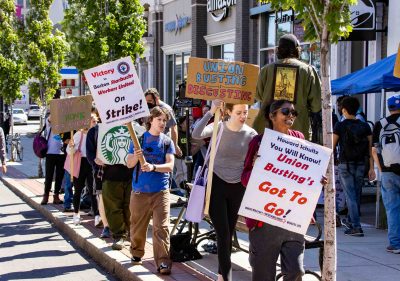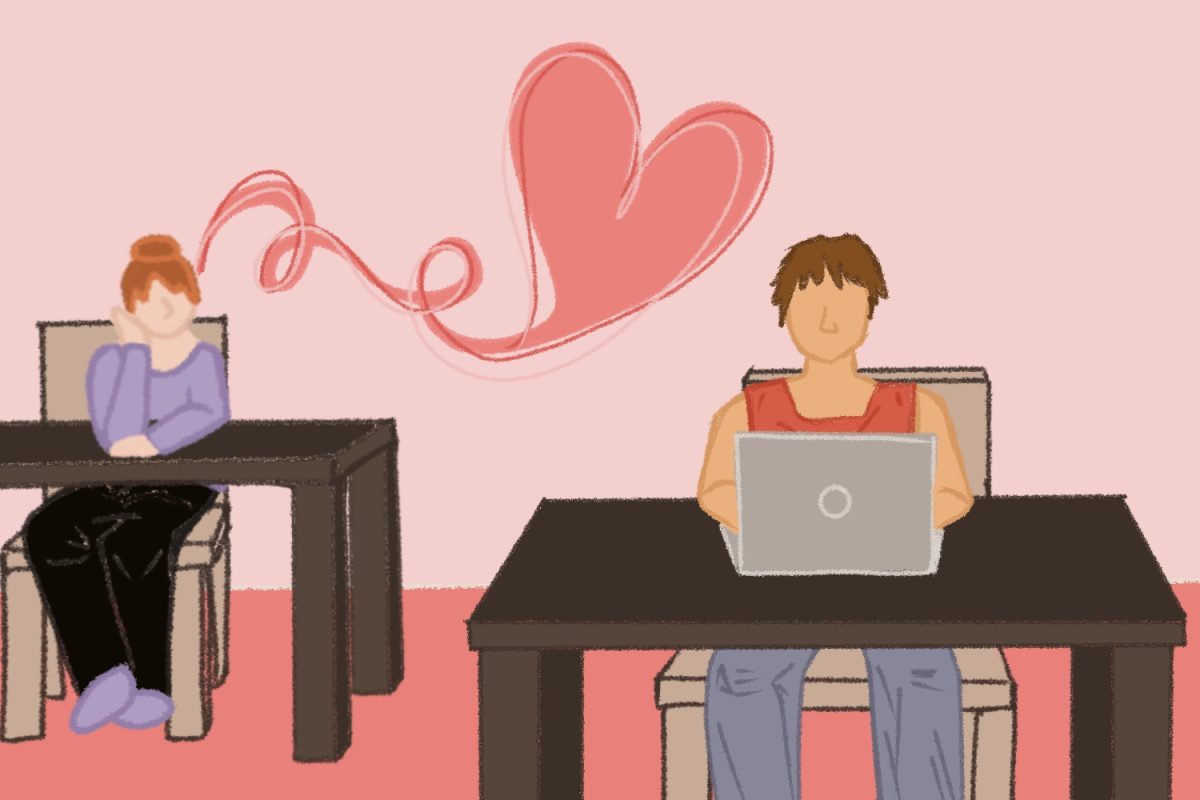
Corporate Starbucks attorneys ordered the 874 Commonwealth Avenue branch strikers to move off store property 60 days into their ongoing stakeout.
Starbucks corporate attorneys emailed the union with instructions to remove their stakeout setup and evacuate by noon on Sept. 15, threatening a trespassing notice and other legal processes, according to a press release from Starbucks Workers United.
On Sept. 15, strikers responded to Starbucks’ instructions by removing their tent and materials from the front patio of the store, while continuing to picket on the sidewalk with signs and chants.
Spencer Costigan, a union worker who has worked at the Brookline branch for over two and a half years, said they helped initiate the strike and that Starbucks’ instructions to remove the stakeout on the 60th day was “disgusting.”
“[Starbucks is] saying that is a legal thing that they have to do because of safety concerns, and they’re also threatening us with a trespassing charge,” said Costigan. “But we’ve been here for 60 days, there have been zero safety concerns. They’re planning to push us onto the sidewalk … it’s way more of a safety issue to be in the middle of the sidewalk.”
Costigan planned to comply with Starbucks’ requests as to not “risk” legal issues or safety.
“The company, like all companies, has police on their side,” Costigan said. “We don’t have guns. I don’t want to get shot.”
Around noon, four police officers stood by the strike, watching the protesters and occasionally interjecting to ask them not to block pedestrians from walking on the sidewalk.
One of the primary complaints of the strikers is of their current acting manager, Tomi Chorlian, whose actions, including removing a pride flag, workers wrote on a cardboard sign at the striking location “created a hostile environment in the workplace where we felt unsafe to express who we were.” These complaints were also posted on Twitter by SBWU.
Some non-employee volunteers at the Brookline Starbucks strike supported the strikers by joining the stake out and providing resources to them, like Nzna Nguyen, a freshman at Boston University’s College of Arts and Sciences.
“I’m here because I want to support the workers… This manager deserves more than termination,” Nguyen said. “These workers’ demands aren’t even the bare minimum.”
Sky Bauer-Rowe, a Northeastern University fourth-year and volunteer at the strike, said Chorlian is currently stationed at another store and getting reported for similar issues among others such as understaffing shifts and denying bereavement.
“She’s been transferred, and the store is experiencing the same things that these employees were and they’re not unionized,” Bauer-Rowe said.
Thomas Kochan, professor at MIT’s Sloan Management School and an expert in U.S. employment policies, wrote in an email that the Starbucks strike is an example of a larger labor law problem in the country.
“Companies can fire workers or otherwise violate the law with little or no expectation of being held accountable for their actions,” Kochan wrote. “The penalties for violating the law are so weak that it may be a ‘rational’ cost-benefit decision to violate the law. And the delays in enforcement further weaken the law as a deterrent.”
Kochan added that the public should play a role in this union effort to attain fairer labor practices.
“The American public should be outraged by the difficulties these workers are experiencing in exercising their rights to form a union and to get a labor agreement,” he wrote. “Customers of Starbucks need to speak out and call for the company [to] act in a way that is consistent with the values it espouses.”
At the time of publication, Starbucks corporate did not reply to The Daily Free Press inquiries.
























































































































